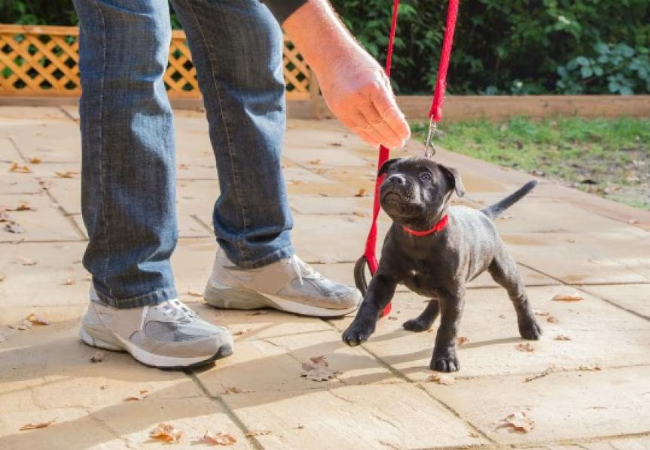7 Dangers of Not Socializing Your Dog in 2025: A Vet’s Guide to Preventing Behavioral Issues 🐶

In this article
7 Dangers of Not Socializing Your Dog in 2025: A Vet’s Guide to Preventing Behavioral Issues 🐶
By Dr. Duncan Houston BVSc
As a veterinarian, I often encounter dogs exhibiting behavioral issues that stem from inadequate socialization during their formative weeks. Proper socialization is crucial for developing a well-adjusted, confident, and friendly canine companion. Let's explore the seven significant dangers of not socializing your dog and how to prevent them.
1. 😨 Generalized Fearfulness
Overview: Dogs lacking exposure to various stimuli during their critical socialization period (approximately 3 to 14 weeks of age) may develop a pervasive fear of unfamiliar people, animals, environments, and objects. This generalized fearfulness can lead to anxiety and stress in everyday situations.
Prevention Tips:
- Introduce your puppy to diverse environments, sounds, people, and other animals in a controlled and positive manner.
- Use treats and praise to create positive associations with new experiences.
- Gradually increase exposure complexity as your puppy becomes more comfortable.
2. 🐕 Aggression Towards Humans and Other Animals
Overview: Under-socialized dogs may perceive unfamiliar people or animals as threats, leading to aggressive behaviors such as growling, snapping, or biting. This aggression often stems from fear and insecurity.
Prevention Tips:
- Enroll your puppy in supervised puppy classes to facilitate positive interactions with other dogs and people.
- Monitor your dog's body language to identify signs of discomfort and intervene appropriately.
- Consult a professional dog trainer or behaviorist if aggressive behaviors emerge.
3. 🐾 Difficulty Handling Routine Care
Overview: Dogs not accustomed to being handled may resist grooming, veterinary exams, or nail trimming, making routine care stressful for both the dog and the owner.
Prevention Tips:
- Regularly handle your puppy's paws, ears, and mouth gently to acclimate them to touch.
- Incorporate positive reinforcement during grooming sessions.
- Gradually introduce grooming tools and procedures in a non-threatening way.
4. 🏠 Separation Anxiety
Overview: Dogs that are overly dependent on their owners due to limited social experiences may develop separation anxiety, exhibiting behaviors like excessive barking, destructive chewing, or house soiling when left alone.
Prevention Tips:
- Encourage independence by allowing your puppy to spend time alone in a safe space.
- Provide engaging toys and activities to occupy your dog during your absence.
- Practice short departures and gradually increase the duration to build tolerance.
5. 🚶♂️ Unpredictable Reactions in New Situations
Overview: Without proper socialization, dogs may react unpredictably to new environments, objects, or situations, leading to stress or fear-based behaviors.
Prevention Tips:
- Expose your dog to a variety of settings, such as parks, urban areas, and different surfaces, during their socialization period.
- Use positive reinforcement to reward calm behavior in new situations.
- Introduce new experiences gradually to prevent overwhelming your dog.
6. 🧍♂️ Over-Attachment to Owners
Overview: Dogs that lack social experiences may become overly attached to their owners, leading to clinginess and distress when separated.
Prevention Tips:
- Encourage interactions with other people and animals to build confidence.
- Provide opportunities for your dog to explore and play independently.
- Establish a consistent routine to help your dog feel secure.
7. 🧠 Increased Risk of Behavioral Disorders
Overview: Inadequate socialization can contribute to the development of behavioral disorders, including phobias, compulsive behaviors, and heightened stress responses.
Prevention Tips:
- Prioritize early and ongoing socialization throughout your dog's life.
- Monitor your dog's behavior for signs of stress or anxiety and address them promptly.
- Seek professional guidance if behavioral issues arise.
📱 Enhance Your Dog's Socialization with Technology
Modern tools can assist in managing your dog's socialization and overall well-being:
- Ask A Vet App: Access expert veterinary advice and schedule consultations conveniently.
🎯 Conclusion
Proper socialization is essential for developing a confident, well-behaved, and emotionally balanced dog. By exposing your puppy to a variety of experiences in a positive and controlled manner, you lay the foundation for a lifetime of healthy interactions and behaviors.
For personalized guidance and support, visit AskAVet.com and download the Ask A Vet app today! 🐾📲






